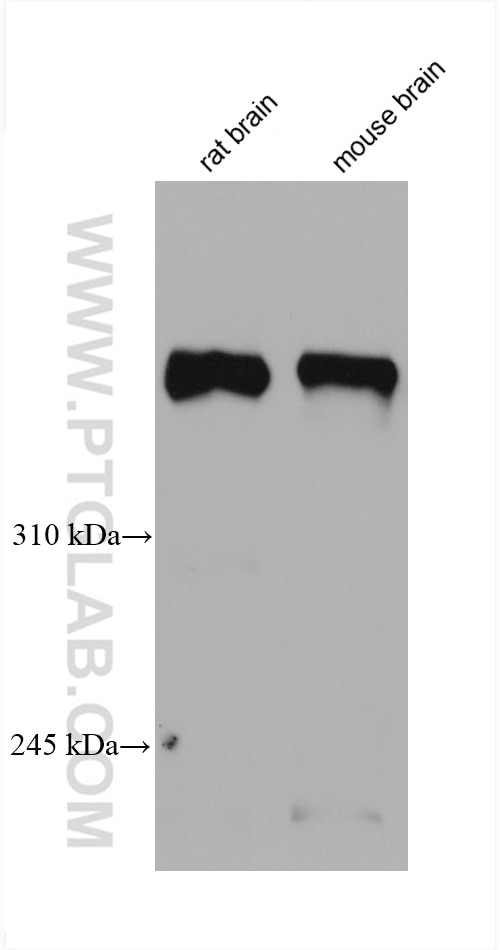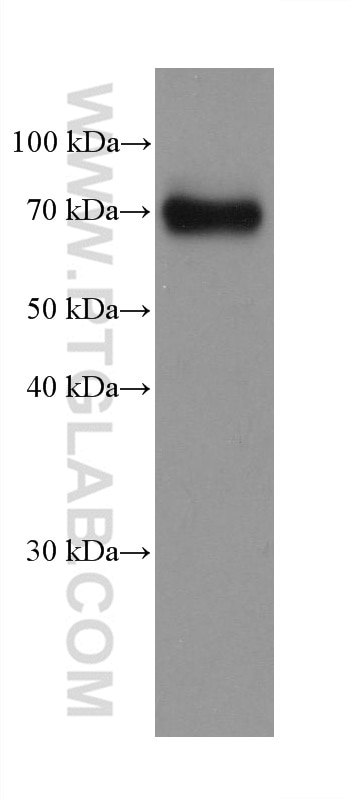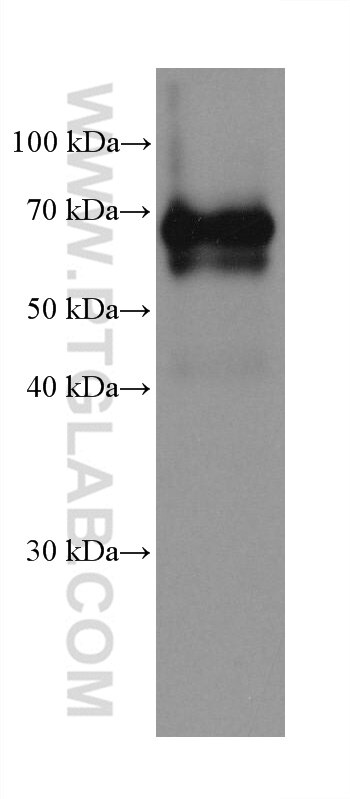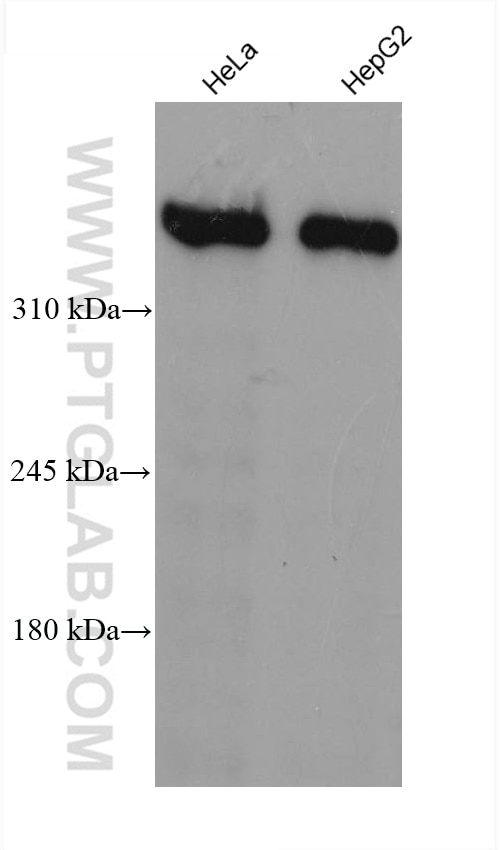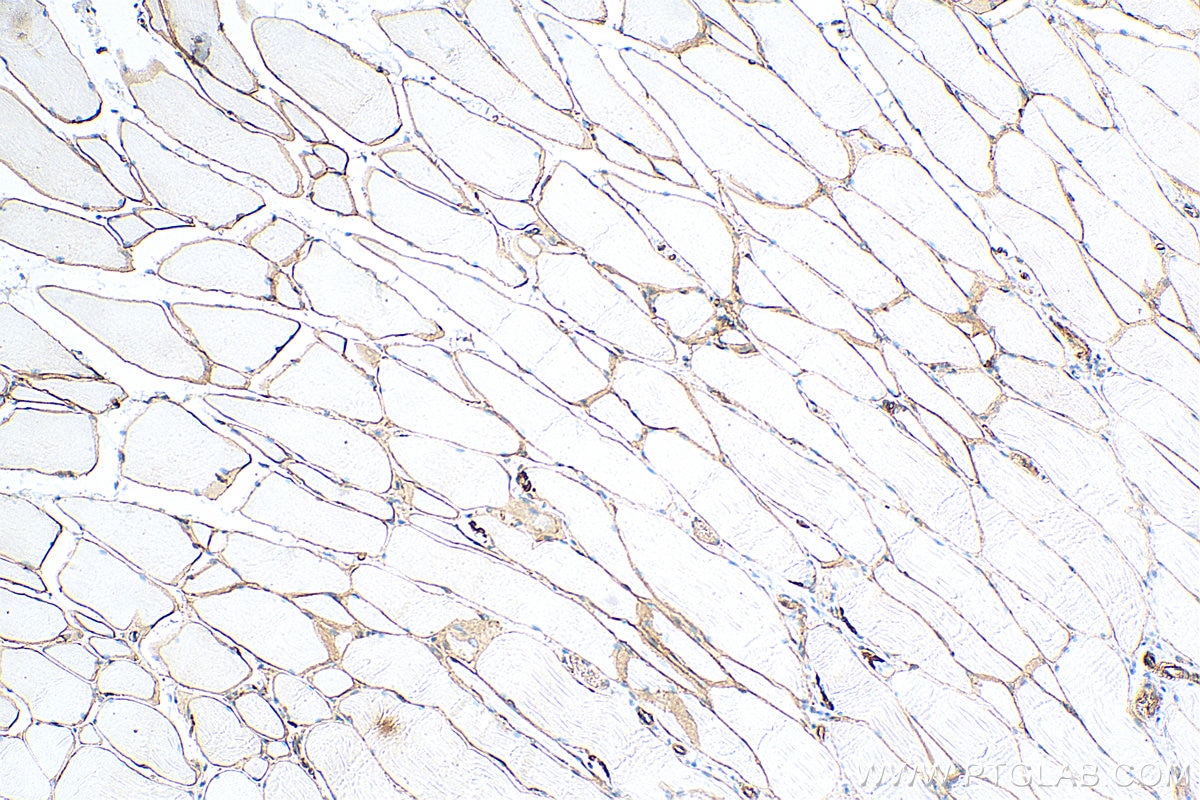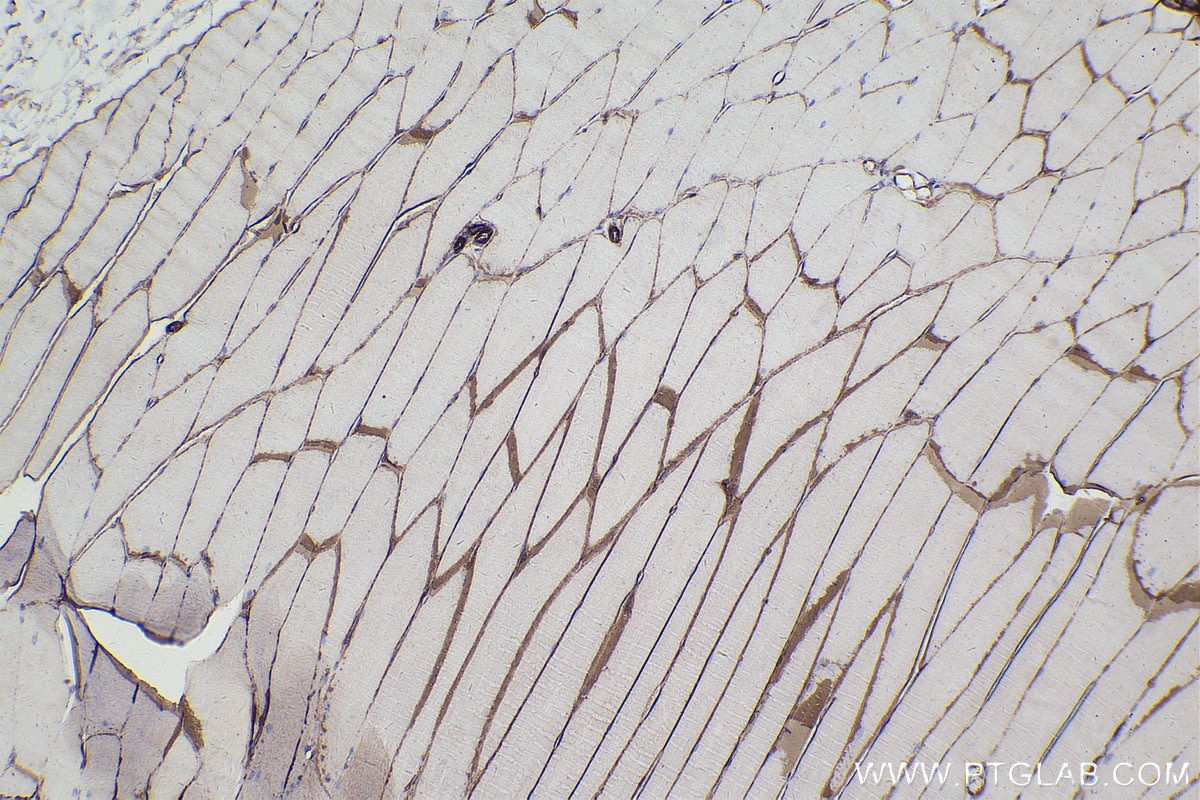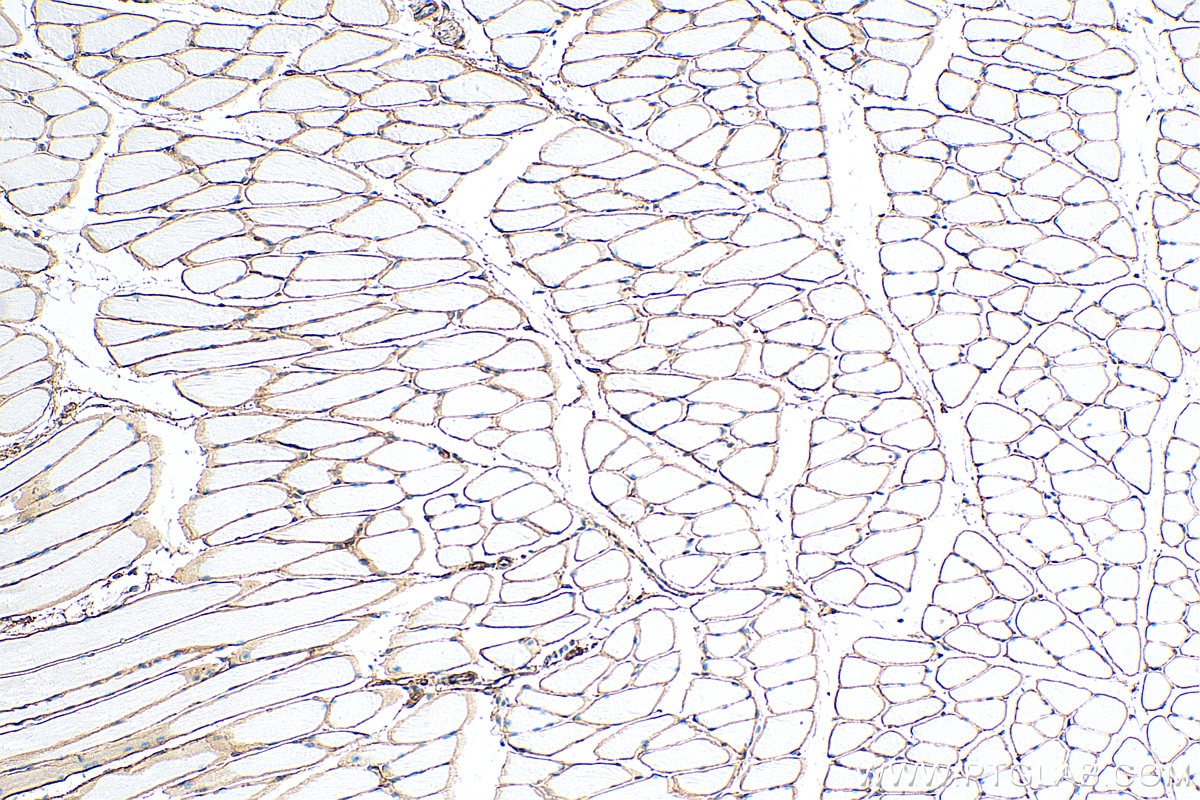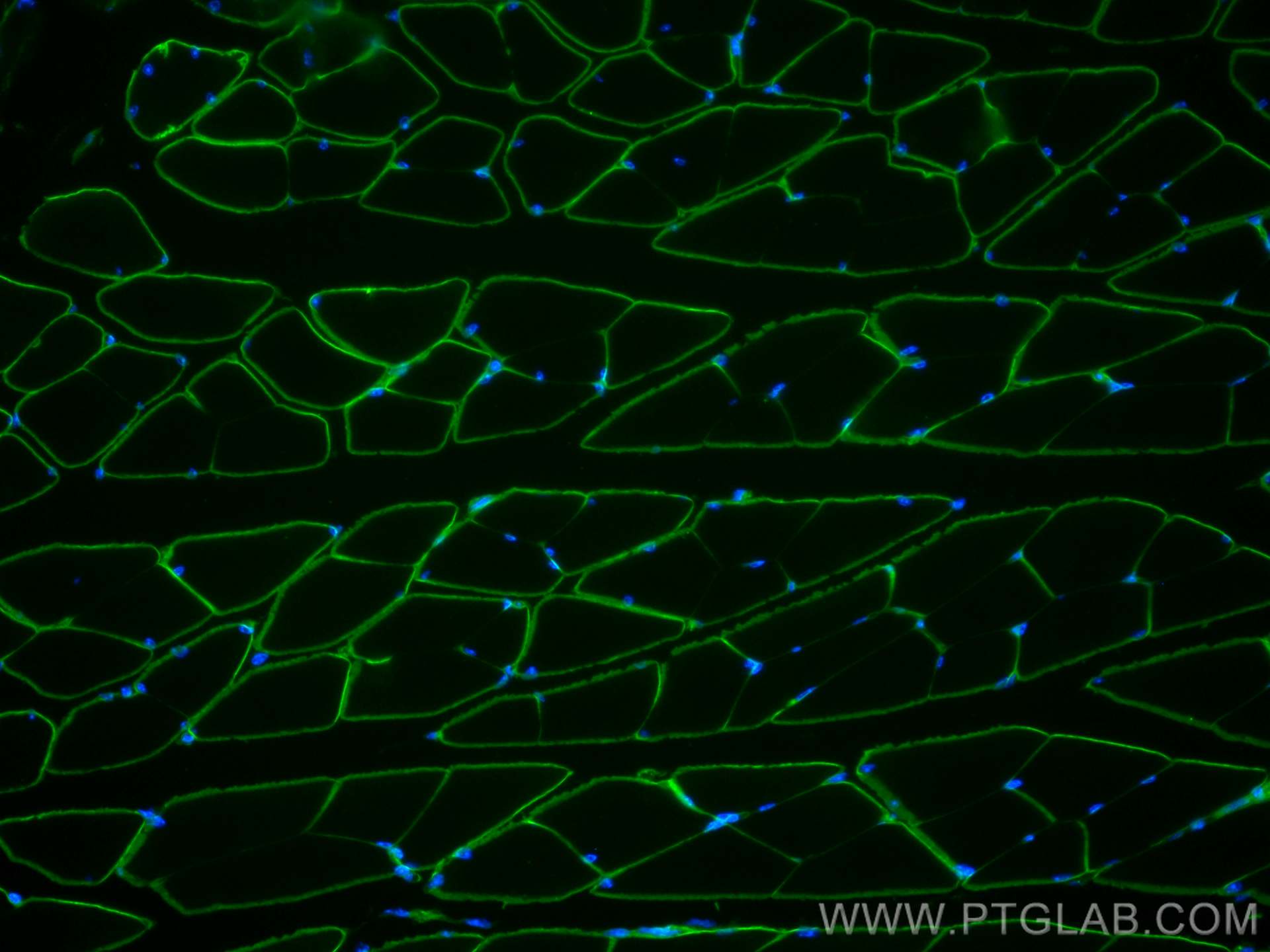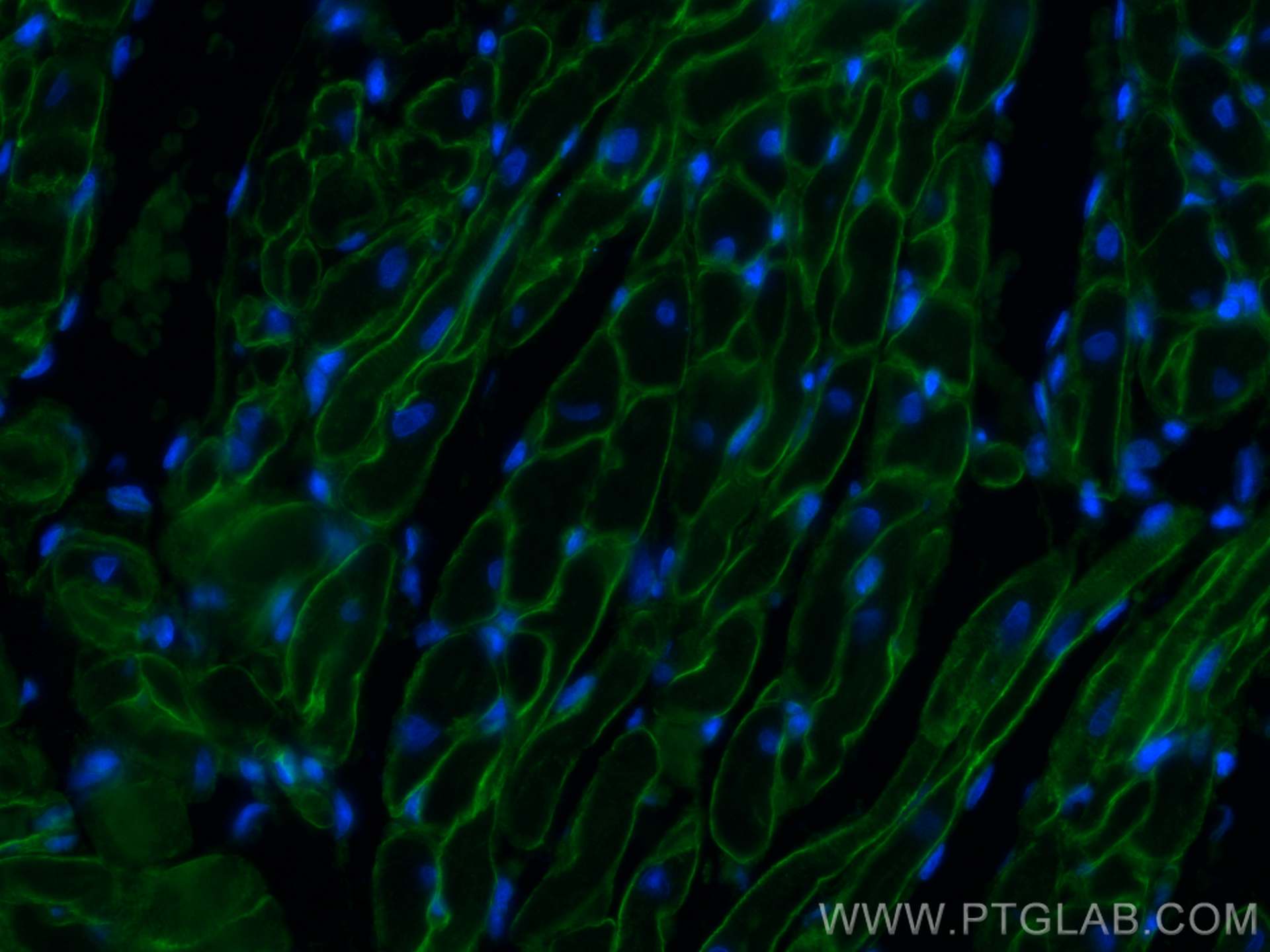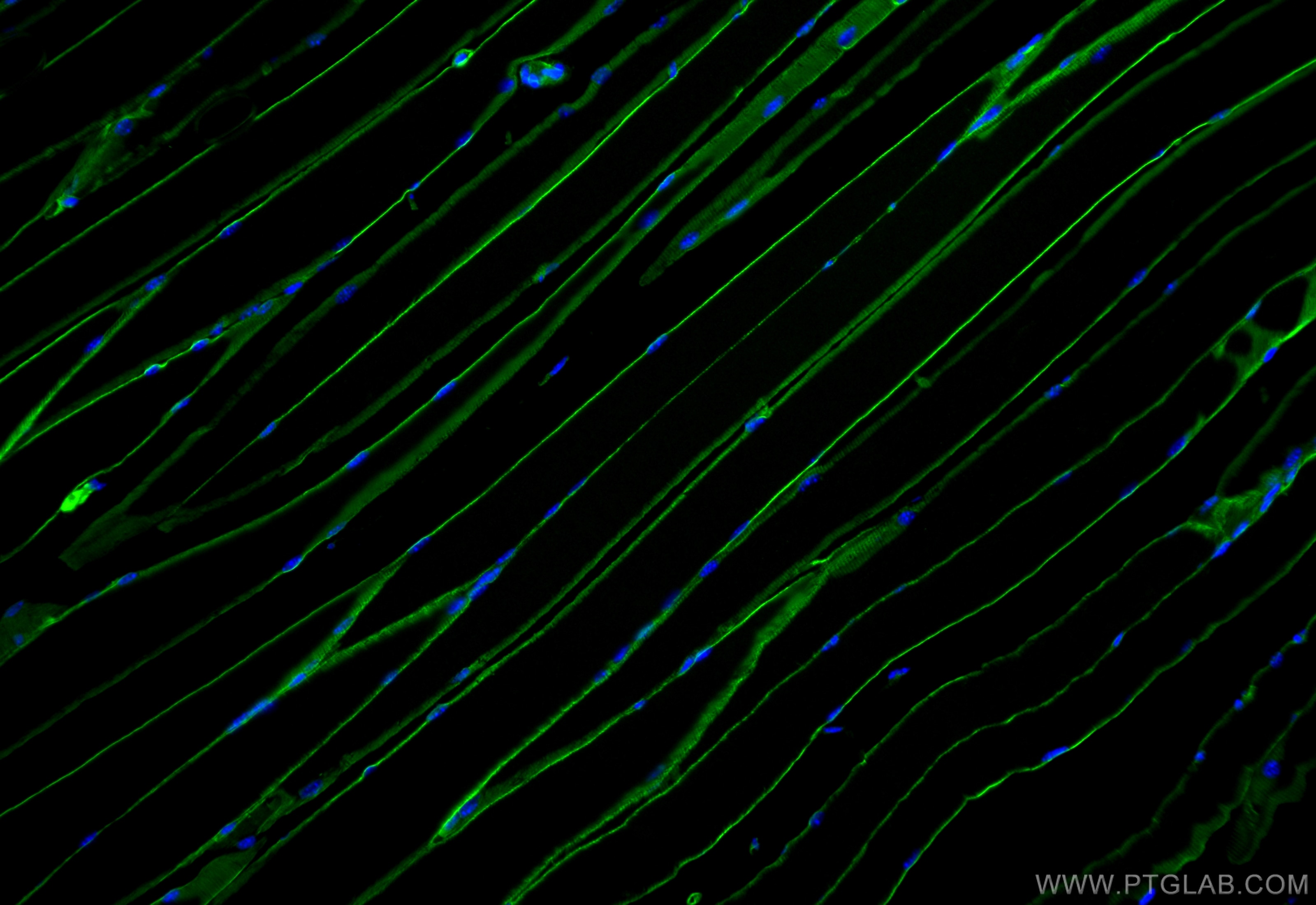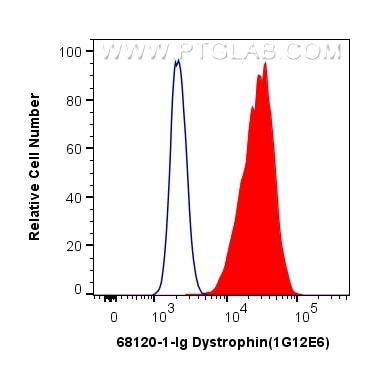Anticorps Monoclonal anti-Dystrophin
Dystrophin Monoclonal Antibody for WB, IHC, IF-P, FC (Intra), Indirect ELISA
Hôte / Isotype
Mouse / IgG2a
Réactivité testée
Humain, rat, souris
Applications
WB, IHC, IF-P, FC (Intra), Indirect ELISA
Conjugaison
Non conjugué
CloneNo.
1G12E6
N° de cat : 68120-1-PBS
Synonymes
Galerie de données de validation
Informations sur le produit
68120-1-PBS cible Dystrophin dans les applications de WB, IHC, IF-P, FC (Intra), Indirect ELISA et montre une réactivité avec des échantillons Humain, rat, souris
| Réactivité | Humain, rat, souris |
| Hôte / Isotype | Mouse / IgG2a |
| Clonalité | Monoclonal |
| Type | Anticorps |
| Immunogène | Dystrophin Protéine recombinante Ag4392 |
| Nom complet | dystrophin |
| Masse moléculaire calculée | 3685 aa, 427 kDa |
| Poids moléculaire observé | 70 kDa, 430 kDa |
| Numéro d’acquisition GenBank | BC028720 |
| Symbole du gène | Dystrophin |
| Identification du gène (NCBI) | 1756 |
| Conjugaison | Non conjugué |
| Forme | Liquide |
| Méthode de purification | Purification par protéine A |
| Tampon de stockage | PBS only |
| Conditions de stockage | Store at -80°C. 20ul contiennent 0,1% de BSA. |
Informations générales
Dystrophin (DMD or BMD) is a large muscle protein whose mutations cause Duchenne muscular dystrophy (DMD) and Becker muscular dystrophy (BMD), the childhood neuromuscular disorders that result in progressive muscle weakness, respiratory difficulties and cardiovascular dysfunction. Dystrophin is a crucial component of the dystrophin-glycoprotein complex which is essential for muscle membrane integrity and stability. Dystrophin is located on the cytoplasmic face of the sarcolemma and connects the cytoskeletal network to the sarcolemma and extracellular matrix. Multiple isoforms of dystrophin exist due to the alternative splicing, with a wide range of MW (69-72, 110-143, 271, 426 kDa). Most tissues contain transcripts of several isoforms.
